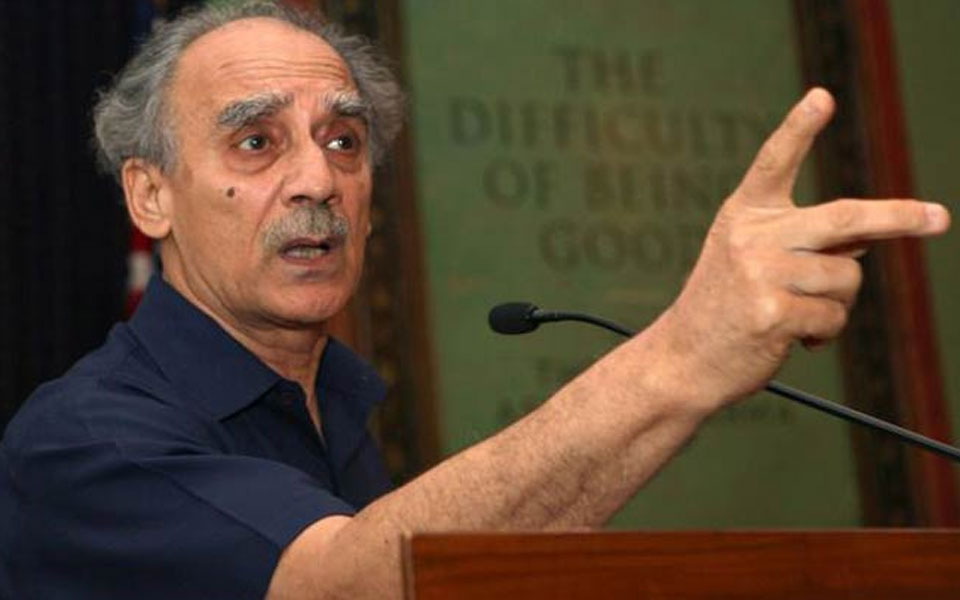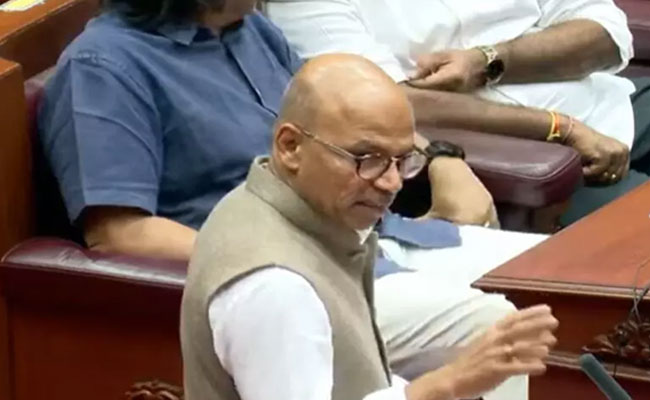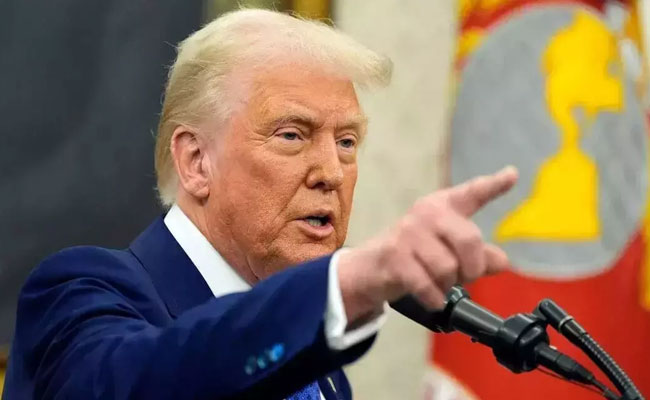New Delhi: Speaking at The Wire Dialogues on September 2, Arun Shourie came down hard on mainstream media. “It is the fourth estate of democracy. It is the institution designed to hold the government to account. But, sadly we have not seen that happen,” he said.
Shourie elaborated on how the media – barring a few publications – has not followed up on important stories. “In the story about Jay Shah, The Wire only documented what is on the department of company affairs website. And you say that nobody should talk about it,” Shourie said. “The media is not following up. Its duty would be, if there is a stay order against The Wire then everybody else should print it.”
Shourie cited the example of the Pentagon papers where the The New York Times was served a restraining order barring the newspaper from publishing further after it had broken the story. As the Times could no longer publish, The Washington Post, a competitor, followed up on the story and published several articles. Both the Post and the Times were taken to court by the government, where the newspapers eventually won in a landmark decision for press freedom.
“In any country with a free press, if one paper publishes one aspect of a story, twenty others will start digging and publish other things. Here the twenty ran away. Only The Caravan followed up on The Wire’s story,” Shourie said highlighting The Caravan’s investigation into the business fortunes of Amit Shah’s son, Jay Shah.
Karan Thapar, the interviewer, asked Shourie if he thought that the media was deliberately not following up. Shourie responded by recalling a Zulu proverb, “A dog with a bone in its mouth can’t bark.”
Shourie explained that he did not believe that the media is not speaking truth to power out of fear. “I feel they are not following up out of greed. The accounts of fear are an excuse that the media is using.”
Responding to Thapar’s question on whether he was disappointed or disgusted with the media, Shourie said, “I have sort of passed all that. There is such a great change in the media, you are wasting your emotions being either disgusted or disappointed.”
The former minister in Atal Bihar Vajpayee’s government, however, stated fear and intimidation also played a role in muzzling the media. “There is no doubt that there is also an attempt to intimidate the media. ABP news sacked some of its journalists. You [Karan Thapar] are not on the main channels as you should be. NDTV is also facing pressures. The strategy is to kill the chickens to frighten the monkeys. You don’t have to do it to everybody,” Shourie said.
Shourie also had a few words of advice for readers. “My advice to readers is that you should support The Wire. There are only a few publications like Scroll, Altnews, The Wire and one newspaper, The Indian Express, which are telling the truth.”
“Mahatma Gandhi used to say that the hands of copyists are our printing machines. Today you have the internet. If some story is blocked by a court order, let us all circulate it. A hundred thousand people circulate it and it will reach all across India,” Shourie said.
courtesy : thewire.in
Let the Truth be known. If you read VB and like VB, please be a VB Supporter and Help us deliver the Truth to one and all.
Belagavi: Medical Education Minister Dr. Sharanaparakash Rudrappa Patil on Tuesday said the State government plans to establish day-care chemotherapy centres in all district hospitals across Karnataka to make cancer treatment more accessible.
Replying to a question raised by BJP MLC M.P. Kushalappa during the Question Hour in the Legislative Council, the minister said it was not feasible for cancer patients from various districts to travel repeatedly to Kidwai Memorial Institute in Bengaluru. To address this issue, the government is taking steps to establish cancer care centers in other districts in collaboration with the Kidwai Memorial Institute of Oncology.
Providing details of cancer treatment at Kidwai, Dr. Patil said that over the past three years, 41,512 cancer patients have received treatment at the institute. Treatment included surgery, radiation therapy, chemotherapy, or a combination of these, depending on the type and stage of cancer.
Between 2022 and 2024, a total of 12,781 patients underwent surgery, 14,423 patients received radiation therapy, and over 28,370 patients were administered chemotherapy, he said.
The minister further noted that more than 110 patients were provided bone marrow transplants, an otherwise expensive procedure, free of cost at the institute during the same period.
The proposed day-care chemotherapy centers, he said, would significantly reduce the burden on patients and improve access to timely cancer treatment at the district level.





